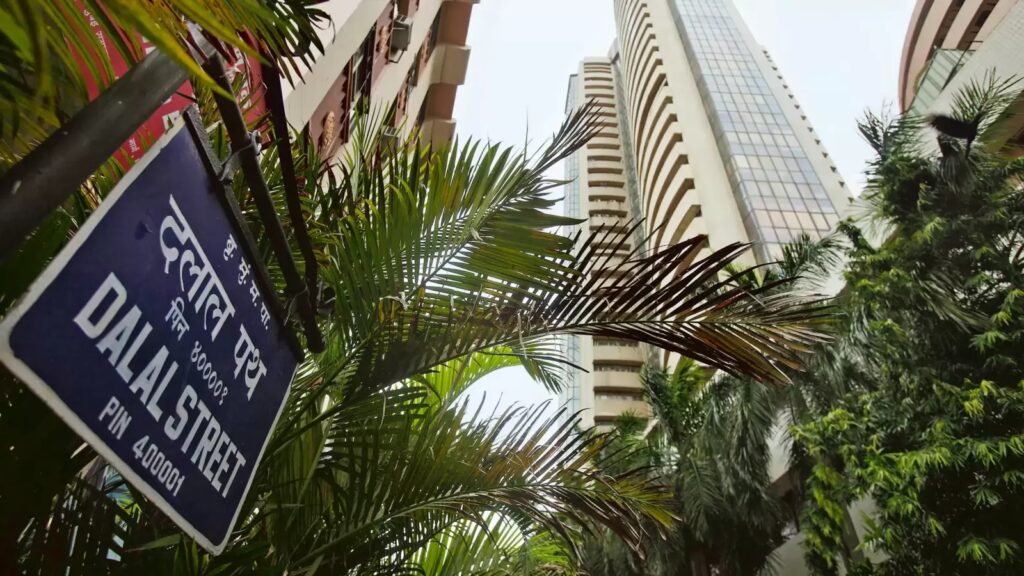Shares of Reliance Industries and Bharti Airtel hit their fresh all-time highs in intraday trade on Friday, 28 June, indicating investors’ positive reaction to the tariff hike reports.
Industry experts anticipated tariff hikes following the Lok Sabha elections due to declining revenue and margins in the sector. Companies require capital to invest in spectrum and cutting-edge technologies.
Experts believe the tariff hikes are a positive step and will augur well for stock prices. The sector could be ripe for re-rating.
“The Indian telecom sector is ripe for a re-rating due to a unique combination of factors. With just three major players—Bharti Airtel, Reliance Jio, and Vodafone Idea—controlling the major market, even minor re-ratings in ARPU can significantly impact their stock prices,” said Trivesh D, Tradejini.
“Looking ahead, successful spectrum bidding, implementation of tariff hikes, and continued subscriber base growth can all be catalysts for a rerating. As the sector consolidates and becomes more efficient, the market will likely recognise this through a re-rating, potentially leading to higher valuations and better returns for investors,” said Trivesh.
With elections over and spectrum auctions over, telecom companies have hiked tariffs by 20-25 per cent.
After Reliance Jio raised the prices of its existing monthly and annual plans, Bharti Airtel decided to increase mobile tariffs by 10 per cent to 21 per cent. The revised tariffs of both the companies will be effective from July 3.
Prashanth Tapse, Senior VP Research Analyst at Mehta Equities, pointed out that the industry was waiting for elections and decided to raise tariffs in the range of nearly 10-25 per cent, which is the need of the hour for all telecom players to sustain in the rising capex space.
The telecom sector has been the most talked about sector in recent months, amplifying digital growth in Indiaand making it the second largest globally, with a subscriber base of 1.091 billion as of Apr 2024.
Tapse observed that after 2021, the industry continued to suffer pressure on high costs due to low ARPU, and they could not even raise and revise the tariffs for multiple reasons, which led to flat growth in the sector.
The spectrum bidding saw a tepid response.
As Mint reported, India’s spectrum auction ended on June 26, Wednesday, with the government collecting ₹11,340.78 crore—the third lowest since competitive bidding began in 2010—from selling 141.4 units of airwaves.
However, despite the muted response to the auction, experts remain optimistic and see the potential for re-rating opportunities in the sector due to tariff hikes.
“Despite the muted response in the auction, we continue to remain optimistic and see the potential for re-rating opportunities in the sector, mainly on the backs of players benefiting from long pending tariff hikes,” said Tapse.
“The industry has planned subsequent hikes every two years, which can boost its revenue growth. In this space, we are fundamentally bullish on Bharti Airtel with a target price of ₹1,750 for the next 9-12 months, and on a high-risk return counter, we see Vodafone Idea can also perform with a target of ₹22-24 for the next 9-12 months,” Tapse said.
Ankit Jain, Vice President and Sector Head – Corporate Ratings, ICRA Limited, underscored that the latest round of tariff hikes will provide traction in the ARPU and can result in additional operating profits of around ₹20,000 crore for the industry once these hikes are fully absorbed.
This will result in increased profit generation, thereby providing headroom for the industry to undertake deleveraging and fund capex for the technology upgrade and network expansion.
ICRA expects the industry revenues to grow by 12-14 per cent in FY25, which, given the operating leverage, is likely to translate into healthy expansion in operating profits by 14-16 per cent. This, in turn, will likely improve industry ROCE (return on capital employed) to more than 10 per cent for FY2025.
ICRA also expects the industry to report ₹3.2-3.3 lakh crore in revenue with operating profits of ₹1.6-1.7 lakh crore in FY25.
“The improvement in operating profits coupled with the muted participation in the latest spectrum auctions and expected moderation in the capex intensity, the debt levels are expected to moderate to around ₹6.2-6.3 lakh crore as of March 31, 2025, with an expectation of further decline going forward. This will likely result in a steady improvement in debt metrics, with industry debt/OPBDITA at 3.7-3.9 times and interest coverage at 3.1-3.3 times for FY2025,” ICRA observed.
Disclaimer: The views and recommendations above are those of individual analysts, experts, and brokerage firms, not Mint. We advise investors to consult certified experts before making any investment decisions.
3.6 Crore Indians visited in a single day choosing us as India’s undisputed platform for General Election Results. Explore the latest updates here!
Download The Mint News App to get Daily Market Updates.
Published: 28 Jun 2024, 03:15 PM IST


